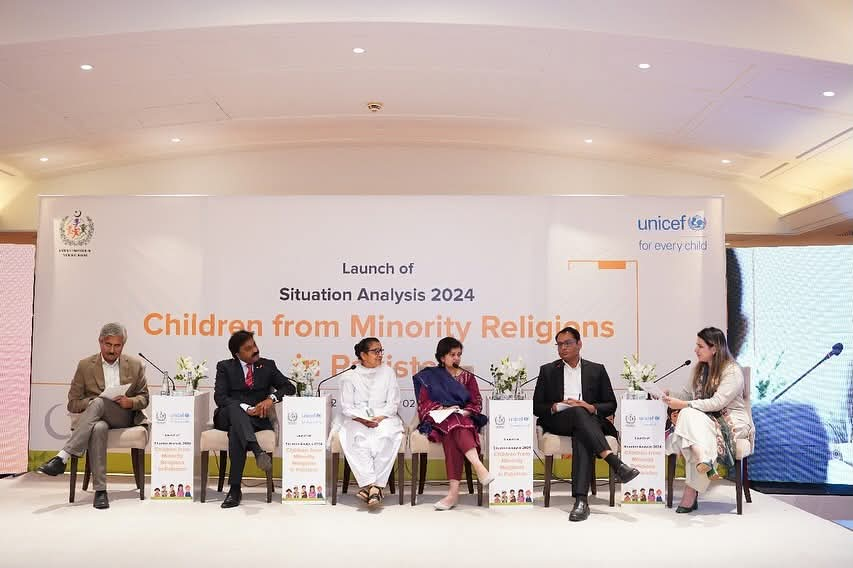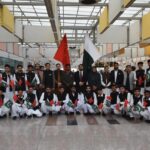The launch of the Situation Analysis of Children from Minority Religions in Pakistan prompted a focused panel discussion on the urgent child rights issues affecting minority children across the country. Panellists highlighted how entrenched exclusion, poverty and discrimination undermine access to education, services and a sense of belonging for many young people.
Albert David of the Minorities Commission of Pakistan argued that true equality requires a shared Pakistani identity that moves beyond a minority versus majority divide, so every child grows up feeling included and respected. This emphasis on national belonging was presented as essential for protecting the dignity of minority children.
Zeeba T. Hashmi, an education research consultant, made the case that religious instruction must be voluntary and that comparative religious studies should be introduced early in schools to build understanding and reduce prejudice. She stressed that curriculum choices shape how minority children experience learning environments.
Arshad Mahmood, deputy team lead for Aawaz 2 at the British Council, noted that while non-discrimination policies and quotas exist on paper, poverty and marginalization often prevent minority children from benefiting in practice. He urged targeted measures to ensure policies reach the most disadvantaged families.
Sister Mariam Parveen from the National Commission on the Status of Women highlighted the compounded harms faced by girls from minority communities, who encounter intersecting discrimination that affects their safety, confidence and future prospects. She described social exclusion in schools—instances where children are not allowed to share water, sit together, or join festivities—and said these practices strike at the dignity of minority children.
Pirbhu Lal Satyani of the Sindh/National Commission for Religious and Cultural Rights drew attention to the harsh realities of poverty, isolation and exploitation that many minority families face because of systemic inequality, calling for stronger safeguards and community outreach.
Moderated by Maham Afridi of the NCRC, the panelists collectively urged action on inclusive education, equal opportunity and respect for every child without distinction. They called for practical steps to translate analysis into policy and for stakeholders at provincial and federal levels to prioritize measures that protect minority children’s rights and dignity.











